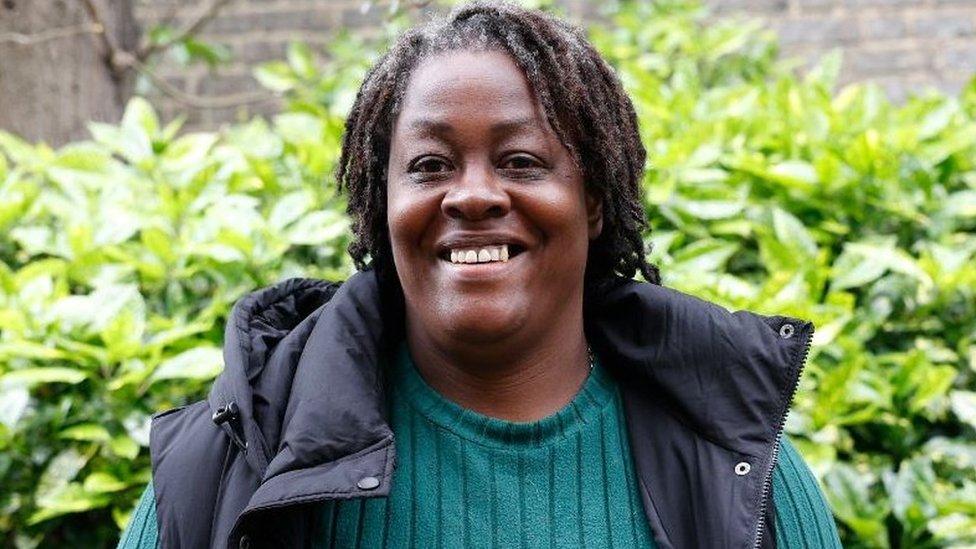Fostering inspires comedian Pritchard-McLean's show
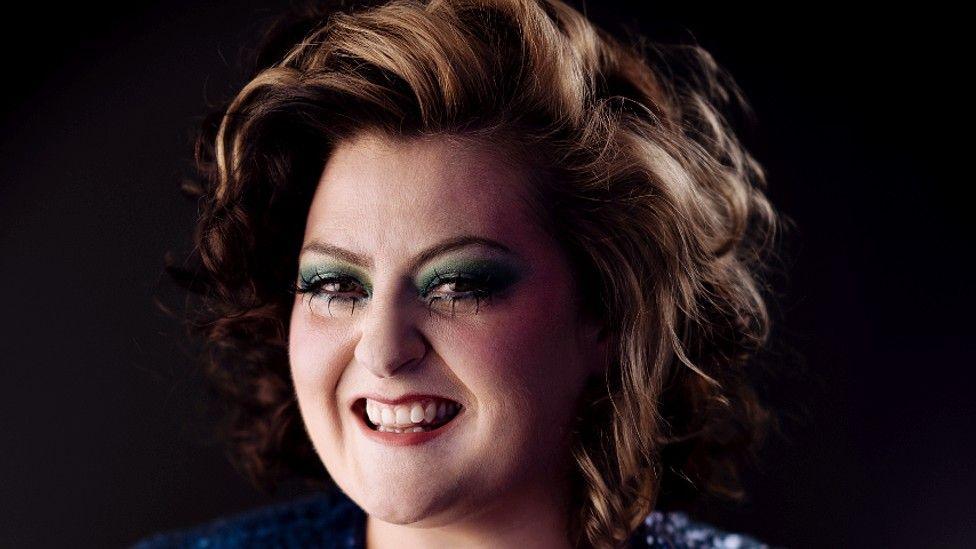
Kiri Pritchard-McLean says her house is always filled with children of friends
- Published
When Kiri Pritchard-McLean thought about her future, she envisaged children forming part of it.
She just wasn’t sure it would be as a biological parent.
So when she and her partner heard an advert on the radio looking for foster carers, it seemed fate was calling.
The award-winning stand-up comedian, with a wide-ranging stage, TV and radio career, might not seem like an obvious candidate for a foster parent - you’d imagine people doing this need to have a routine, predictable home life.
But what Pritchard-McLean, 37, and her partner can offer is respite fostering at their north Wales farm on Anglesey for short periods, when they are at home and can fully engage with their charges.
This means taking in children for typically a couple of days, although this has ranged from a few hours to two weeks.
It gives longer-term fostering families or the care-experienced children themselves time out, providing gaps in care “like floating babysitters”.
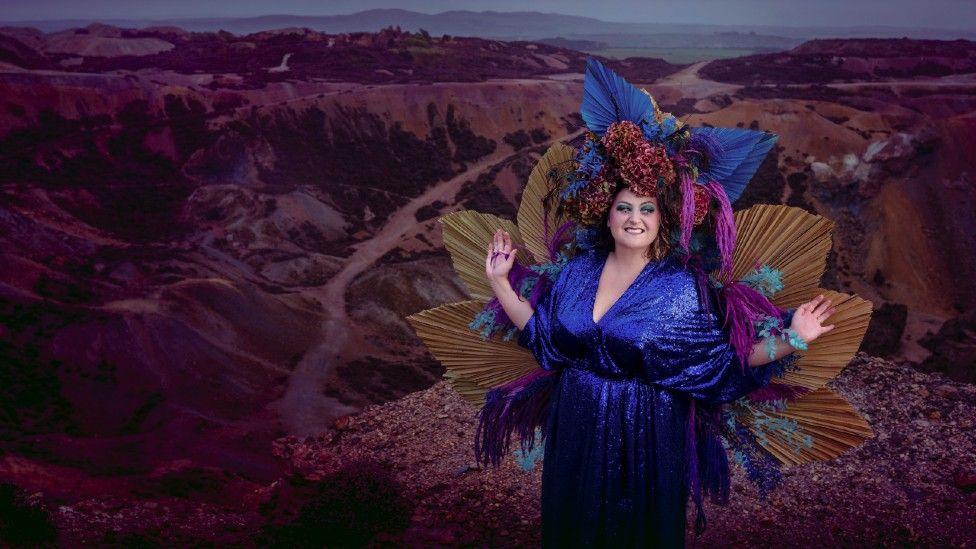
Some of the promotional shots for her tour were taken on her home island of Anglesey
There are nearly 5,000 children in foster care living with 3,800 families in Wales, but there is always a need for more.
According to The Fostering Network, almost 70,000 children live with almost 52,000 foster families across the UK each day.
This is nearly three-quarters of the 98,000 children in care away from home on any one day in the UK.
Now – after three years of having to keep her profession and even her real name from the young charges she takes in – Pritchard-McLean has turned her experiences into a stage show, mainly as a means of getting the message out there that this is something more people should consider doing.
Pritchard-McLean describes a happy and secure childhood growing up on a farm in Anglesey, and acknowledges her privilege in having this behind her, in the way many of the children who pass through her doors do not.
The youngest of three siblings, there is a strong tradition of helping children in her family.
Both her brothers are teachers, while her parents ran a riding school as well as teaching riding for the disabled.
She has taught drama since she was 16 and last year set up a comedy school for those aged eight and up.
So in some sense this is a natural extension to that, although she adds the caveat that she was, and remains, “kind of terrified of babies because I have no experience”.
“I suppose the idea of being involved with, and nurturing and supporting children that aren’t biologically yours is absolutely normalised in my family,” she explains.
“Since my 20s, when I started seriously thinking about what does my family look like in the future, I was like, I don’t feel like biological children is the right thing for me.
“There was a lot that didn’t appeal about being a mum in a conventional sense. There’s still so many things I struggle with and a lot of it is in relation to inequality and the price that mothers pay, and I was finding that really hard to reconcile.”
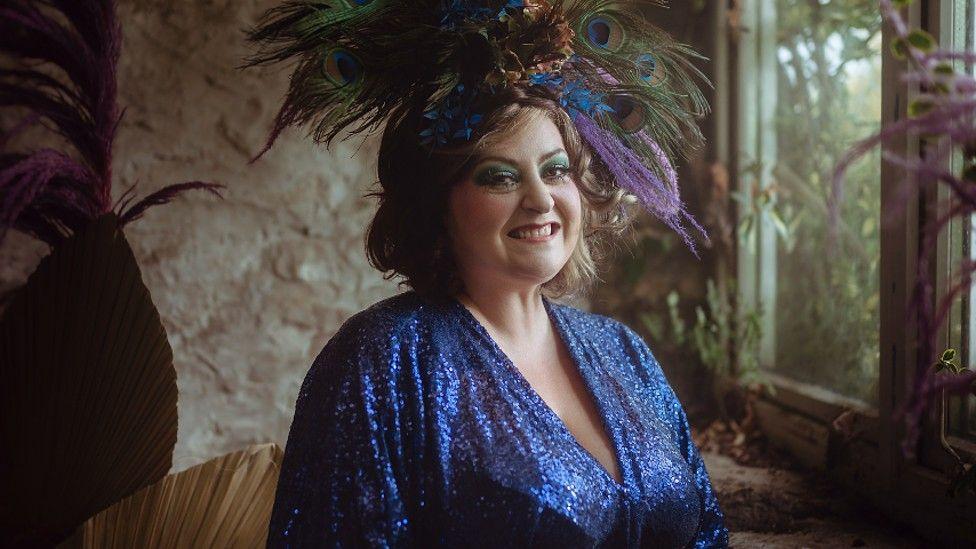
Her home, where she welcomes the foster children, also features in the tour shots
She and her partner had talked about “one day we might adopt” but when the radio advert popped up saying there was a desperate shortage of foster carers in her area, something clicked.
“I’d never even considered foster care and it felt like a really measured, safe way into that work,” she says, adding that although they are currently offering short-term respite care, they could see themselves moving into longer term fostering in the future.
Partly because they started the process when the pandemic lockdowns hit and partly just because it takes time anyway, the path to becoming approved took around a year.
“We started doing training which we found fascinating. That’s one of the things weird about fostering is that I absolutely love the training. I know that’s probably other people’s nightmare,” she says.
“Then you have an assessment which is in excess of 60 hours of interviews with the social worker who assesses you.”
'Magnificent, wonderful, brilliant company'
She describes their social worker as “absolutely fantastic” but added: “That doesn’t mean they don’t ask a lot of tough questions.
“They want to know everything about your upbringing, your wages, your pets, how your resolve arguments. We were interviewed together and then we were interviewed separately and then our friends were interviewed, previous partners, all this kind of thing.
“You could say it’s invasive but there was no point at which I felt violated.
“I talk about it in the show. I’m glad it’s that thorough. Children are precious cargo and if a young person is care experienced then there’s already been someone in their life who hasn’t been able to meet their needs, and I certainly don’t want to be another person who’s doing that.”
Comedy duo's lifelong serial killer fascination
- Published1 January 2024
Welsh comic wins award in memory of sit-com star
- Published16 March 2020
Her memory of the first young person they hosted remains very clear.
“I imagine it’s like any other moment of being a parent when you go 'how has anyone let me get away with this?' 'What am I doing here?' 'I’m absolutely faking it 'til I make it'," she said.
“She was a brilliant girl, really funny and we had a lovely time with her.
“We have been very lucky, 100% of the kids that we have had in our lives as a result of fostering have been magnificent, wonderful, brilliant company.
“That’s not to say they don’t come with individual challenges, or some of them take a bit more warming up.”
'I was quite evangelical about it'
At the start of the fostering journey, Pritchard-McLean was under strict instructions as to how she interacted with the young people because of her professional life.
“We were an unusual prospect [as foster carers]. For a start, being so young and being without our own biological children," she said.
"Then you add on top of that, weird jobs that people don’t really know people who do them so can’t get their heads around what that world looks like.
“So it came with a set of conditions that I could not use my real name, because it would make me very googleable, and that might make the young person vulnerable, or it might make me vulnerable."
She “totally understood and still understands” those decisions.
However, as time went on she had private conversations with friends about her experiences and how well the arrangement suited them and “all the really edifying, uplifting bits that I craved or found rewarding when I imagined what having a family was like".
“I was being quite evangelical about it, and people would go away and go 'oh I think I might look into it', and I was thinking I’m a great recruitment tool here for something I believe in.
“What if I could do this on a bigger scale?”
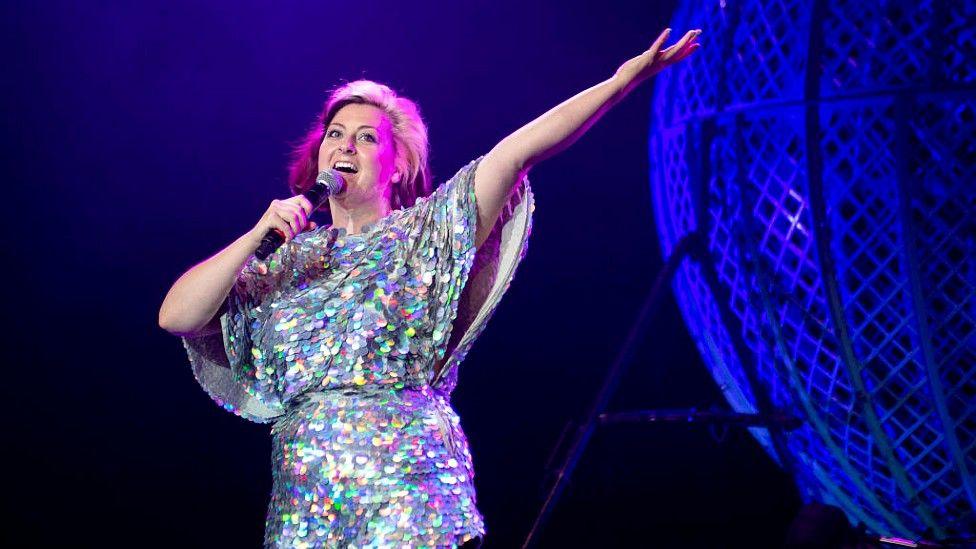
Kiri at the Edinburgh Festival in 2018
So she wrote a show, which focuses on the process of becoming a foster carer, “in secret” then messaged her social worker and said she had something to show her.
“I went and did one of the toughest gigs of my life,” she laughs.
“In a boardroom in Llangefni town council offices. Fair play to the three gals, they were absolutely brilliant as an audience considering everything.”
She had to repeat the show “to six social workers this time", adding: "I said 'can you see the value in this?' After a long Davina McCall type pause they said 'yes, we absolutely can'.”
The show, Peacock, will tour the UK and Ireland and Pritchard-McLean will have input from organisations such as Foster Wales and local fostering teams who can have a booth at her shows giving information to any audience members who are inspired to take a closer look at the process themselves.
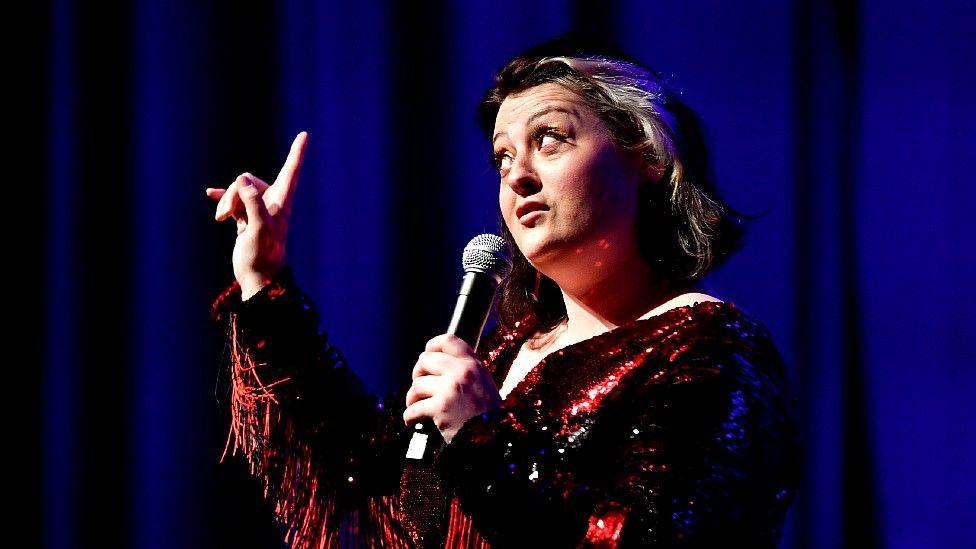
The comedian has only now been allowed to tell her charges what she does for a living
A bonus for the comedian is she has just been allowed to use her real name and talk honestly about what she does with the children she hosts.
As she says: “Young people are very perceptive and I think they can tell when you’re holding back something.”
Smiling broadly she adds: “Also I’ve got a pair of slippers which say Team Kiri on them from a charity walk that I did and I had to hide them normally when they come in the house.
“Now I get to wear my Team Kiri slippers so I’m absolutely thrilled.”
Related topics
- Published10 March 2021
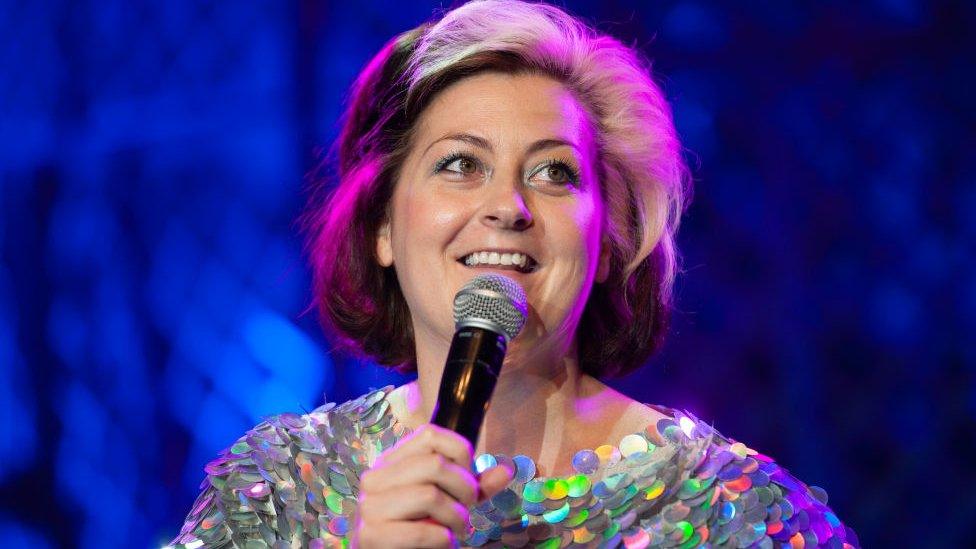
- Published8 January 2024
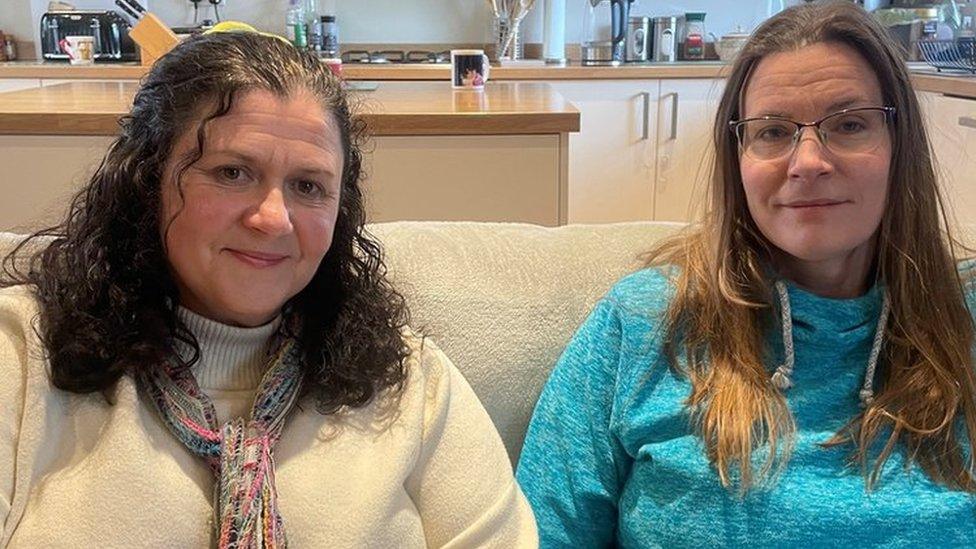
- Published17 April 2024
